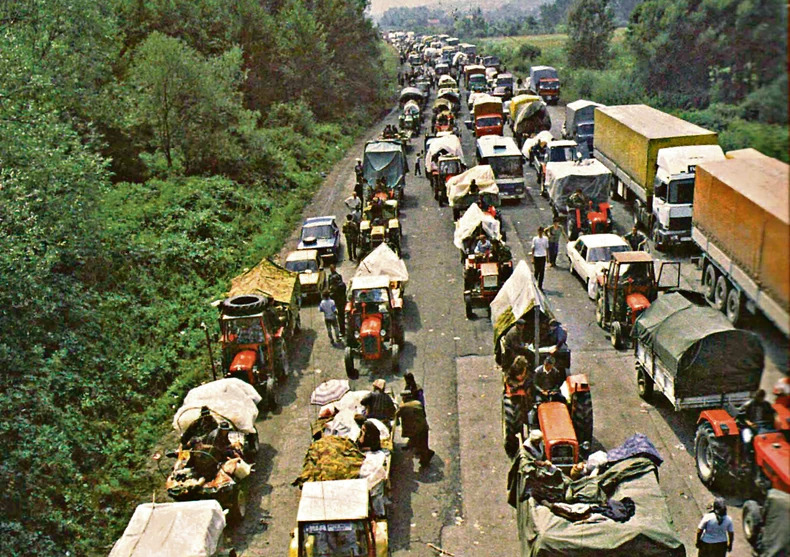Operation Storm: A Tragedy Remembered, a Future Foreseen
This was preceded by a mass evacuation of some 250,000 Serbs, the majority of whom were civilians, fleeing towards Serbia and Republika Srpska. The shelling, bombing, and attacking refugees in columns resulted in gigantic violations of international humanitarian law. To date, 1,852 Serbs are missing or dead, according to reports from human rights organizations, and the material destruction included tens of thousands of homes, churches, and monuments of culture.
This clearance operation came just months after “Operation Flash”, in which 15,000 Serbs were forced out of Western Slavonia. These operations have reshaped the demographic profile of Croatia: in 1991, Serbs made up 12.2% of Croatia's population; by 2021, just 3.2%. In spite of legal protection, systematic discrimination, hate speech, and violence against Serbs persist, primarily among returnee populations. Returns are low and the use of the Serbian language and the Cyrillic alphabet is still resisted.

Yet while survivors struggle for acknowledgment, fascist symbols are reappearing in Croatian public life. A recent concert in Zagreb, attended by nearly half a million people, included explicit “Ustaša” symbolism. Another is expected on August 5, raising alarm about the normalization of extremist sentiment. The Croatian political leadership must not remain silent, it bears the responsibility to condemn and marginalize such ideologies, not tolerate them.
This can’t be viewed in a vacuum. Historical trauma runs deep, particularly for Serbs remembering the atrocities of WWII, when hundreds of thousands of Serbs, Jews, and Roma were killed under “Independent State of Croatia” leadership, in camps like Jasenovac, Stara Gradiška, and Jadovno. But the answer to former suffering is not war, it is truth and justice.
These wounds are deep, and they remain fresh. But the remedy is not in reopening conflict. The Republic of Serbia has ever been a defender of peace, stability, and respect for international law. There is no call for revenge, but a call for truth, recognition, and justice.
For “Operation Storm” was not just a military action. It was a human tragedy that led to the forced displacement of more than a quarter million people, whose suffering continues to this day in the form of silence, denial, and systematic discrimination.
Serbia calls for peace, regional stability, and respect for the international law. It does not intend to open wounds, but to ensure that they are not concealed behind denial. “Operation Storm” must never be glorified, nor should the suffering of its victims be kept under wraps. Reconciliation has to begin with recognition, and without justice for all victims, it will never be real.
Let us not forget all the civilian victims, to make sure that such tragedies do not repeat themselves.